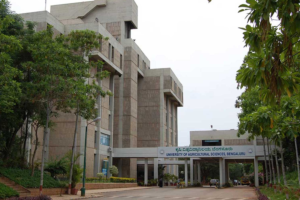Introduction
Karnataka State Open University (KSOU), Mysuru, is a State Public University established by the act of the State Legislature in 1992 and was brought into force in June 1996. It offers a wide range of undergraduate, postgraduate and doctoral programs across various disciplines.
With a diverse range of programs across various disciplines, KSOU faced significant challenges in managing traditional paper-based evaluations. Multiple question paper patterns, varying evaluation criteria based on student batches, and the sheer volume of answer sheets presented logistical hurdles and potential delays in result declaration.
Challenges
- Manual Evaluation: Evaluating a large number of answer sheets manually was time-consuming and prone to human error.
- Inconsistent Marking: Maintaining consistency in marking across a large pool of evaluators was difficult.
- Logistical Delays: Processing and physically moving all answer scripts to their HQ for evaluation caused delays in result declaration.
- Limited Scalability: The traditional system couldn’t easily accommodate an increase in student enrolment.
- Lack of Anonymity: The current system lacks anonymity, potentially leading to bias in the evaluation process.
- High Evaluation Costs: Significant expenditure on evaluator fees, travel, and accommodation.
Solution
KSOU partnered with Spherebox to implement a comprehensive digital evaluation system. The process follows a secure and efficient workflow:
- Secure Scanning and Upload: Students submit their answer sheets and the system scans and uploads all answer scripts anonymously to a secure server, ensuring data integrity.
- Automated Assignment and Guided Marking: Evaluators are assigned a manageable bundle of anonymized answer scripts through the online platform. The system provides a guided marking interface with clear instructions and rubrics to minimize errors and maintain consistency in evaluation.
- Secure In-House Evaluation: The evaluation process takes place within a secure in-house facility. Evaluators use dedicated devices with restricted access to ensure data security.
- Secure Data Storage and Result Publication: Scores are electronically submitted and securely stored within the system. Result publication dates are determined collaboratively, and scores are released seamlessly after finalization.
- Discrepancy Management: The system allows for re-evaluation of scripts in case of discrepancies raised by students. Additionally, students can opt for a secure online review of their scanned answer scripts for transparency and clarification.
Results
- Increased Efficiency: Automated assignment, guided marking, and online score submission streamlines the evaluation process, significantly reducing processing time and result declaration delays.
- Enhanced Accuracy: Automated marking and standardized processes minimized human error and ensured consistent evaluation across batches.
- Improved Scalability: The digital platform can easily handle an increasing student population without logistical constraints.
- Valuable Data and Analytics: The system generated detailed reports offering valuable insights into student performance and facilitating informed curriculum decisions.
- Environmentally Friendly: By reducing paper usage, the digital solution contributes to a more sustainable approach.
- Transparency: Online review of scanned answer scripts empowers students to understand their performance and address any concerns.
- Reduced Malpractices: Anonymized answer scripts eliminate the possibility of favoritism and promote a level playing field for all students.
Conclusion
The digital evaluation system implemented at KSOU has demonstrably transformed the assessment process. By addressing the challenges associated with traditional paper-based evaluation, the university has achieved greater efficiency, accuracy, and scalability. The system empowers faculty with valuable data for informed decision-making, ultimately enhancing the learning experience for students pursuing higher education through KSOU’s open learning programs.





